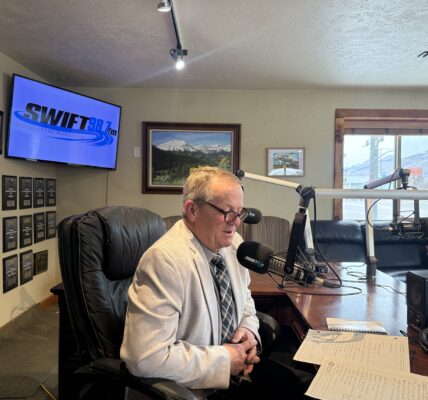Senate committee moves tribal hunting rights bill forward, despite opposition
By Kristen Czaban
The Sheridan Press
Via- Wyoming News Exchange
SHERIDAN — On Tuesday, a Wyoming Senate committee advanced House Bill 83, which would allow the governor to negotiate off-reservation hunting agreements with recognized tribes, despite testimony from multiple tribal representatives opposed to the effort.
Backers of the bill said it aims to allow the state of Wyoming and tribes to proactively address the issue of tribal hunting rights following the U.S. Supreme Court decision in Herrera v. Wyoming, which found tribal hunting rights did not extinguish with Wyoming statehood. The legislation would grant the governor the authority to negotiate with tribes regarding the rights.
“(It’s) a much more responsible way to make sure we have good regulatory structure in place so we don’t need to wait for someone else to be a test case or wait for the court to determine how the process should work,” Rep. Lloyd Larsen, R-Lander, said while testifying before the Senate Travel, Wildlife and Cultural Resources Committee Tuesday.
While the legislation initially had the support of the Eastern Shoshone Tribe of the Wind River Reservation, that support has since been rescinded.
Members of the Shoshone-Bannock Tribe, which shares a treaty with the Eastern Shoshone, have also shared concerns.
Jason Baldes, an Eastern Shoshone tribal member who spoke before the committee, said he worried the bill would put tribal hunting game codes under state authority, therefore stripping tribes of their sovereignty.
“It makes the likelihood of reaching an agreement near impossible,” Baldes said.
Sen. Affie Ellis, R-Cheyenne, attempted to amend the bill to remove some of the language tribal members cited as the most difficult to support; that language set parameters around what any potential agreement could include. Legislators said the language was included to put some guardrails around negotiations the governor may undertake to ensure it aligns with Wyoming statutes.
Ellis noted the legislation allows for negotiations but does not require any tribes to participate if they choose not to do so. Stripping the parameter-setting language the tribes found most troublesome, Ellis said, could help get the two sides closer together and show legislative support for the governor’s efforts.
“The reason I feel that this is important is the governor has been, I think, really working very diligently to build relationships with both of our tribes,” Ellis said. “… I don’t know that Wyoming will always have a governor that is that committed.”
Other testimony from tribal members included concern the state of Wyoming was attempting to assert jurisdiction over tribal hunting rights, which are considered basic and central rights for tribal members. Any agreement, they said, could have broad national impacts.
Kit Wendtland, special counsel for Gov. Mark Gordon’s office, acknowledged the legislation and the issue of tribal hunting rights is an important and controversial one but emphasized the need to distinguish perception from legislative language.
“In terms of the perceptions of what this might say versus what it does say, at the end of the day, this bill does not bind a tribe to anything,” Wendtland said.
The need to address tribal hunting rights in the state and across the country has received national attention since Crow Tribe member Clayvin Herrera faced charges for off-season elk hunting in the Bighorn Mountains in 2014. Herrera asserted tribal hunting rights allowed for hunting on the lands.
In 2019, the U.S. Supreme Court decided in a 5-4 vote that the Crow’s hunting rights on unoccupied lands had not been extinguished with Wyoming’s statehood. The case was remanded and awaits further hearings in Sheridan County Circuit Court to address issues of defining “unoccupied” and the need for conservation.
The Senate Travel, Wildlife and Cultural Resources Committee moved the bill forward with a 3-2 vote and it was placed on the General File Tuesday. It is tentatively on the schedule to be heard by the Senate Wednesday.





